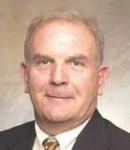January 11, 2007

Every industry has them! People who seem to be larger than life and who always reach out to others and help them solve problems, no matter how large or how small. We call them many things — leader, legend, icon and usually friend.
The North Carolina vegetable industry recently lost such a leader with the recent death of Doug Sanders. With his quick wit, his ever present smile and trademark straw hat, Sanders seemed to rise above the crises that seemed to always plague the vegetable industry and always find a way to make things work better.
He was a professor of horticulture at North Carolina State University, joining the faculty in 1970, shortly after finishing his Ph.D at the University of Minnesota. During his tenure there, Sanders set an example for teaching both students and grizzled, independent vegetable growers.
When Sanders came to North Carolina State, the vegetable industry was floundering at best. As Sanders once quipped, “They were losing money just fine, they didn’t need some semi-educated Yankee to come down here and tell them how to do it better.”
The North Carolina vegetable industry has come a long way since Sanders came south. And, in his own soft-spoken way he made a difference and leaves a legacy of excellence that will be difficult to maintain.
Among the many things Doug Sanders introduced to North Carolina vegetable production are drip irrigation, plasticulture and precision seeding. Sanders expertise stretched well beyond North Carolina, and he brought expertise that convinced growers to try new crops like asparagus, broccoli, sweet onions and leaf lettuce.
Perhaps the best thing Sanders did for North Carolina was to play a vital role in establishment, and survival of the North Carolina Fruit and Vegetable Growers Association. The recent 21st annual meeting of the organization included a tribute to Sanders.
At the recent meeting, Brent Jackson, a vegetable grower from Autryville, N.C., and president of the National Watermelon Growers Association made an emotional, heart-felt tribute to Sanders. “Doug was always the teacher. He always found a way, no matter what, to get things done and usually left you smiling when he was gone,” Jackson recalls.
“He taught us a lot about vegetable production, but he taught us a lot more about how to conduct ourselves and our business,” Jackson noted. “When members of the association had differences of opinion on how things should be done, our solution too often would have been to take it outside and fight it out, but Doug was always there to show us a better way,” Jackson recalled, fighting back tears.
Among his many virtues, Sanders had a great sense of humor, often poking fun at himself. In a national television interview, he was asked, “why did you get into the vegetable business”? He said he started growing melons when was 16 years old to have enough money to put gas in his family’s car so he could chase girls.
Early on he caught one of those girls. He and his wife Ellen were married 42 years at the time of his death.
As part of the legacy he left to vegetable growers and students around the World, the Douglas C and Ellen J. Sanders Horticultural Research Endowment has been established. Income from the endowment will support graduate students’ research on sustainable vegetable production and food safety.
e-mail: [email protected]
About the Author(s)
You May Also Like






